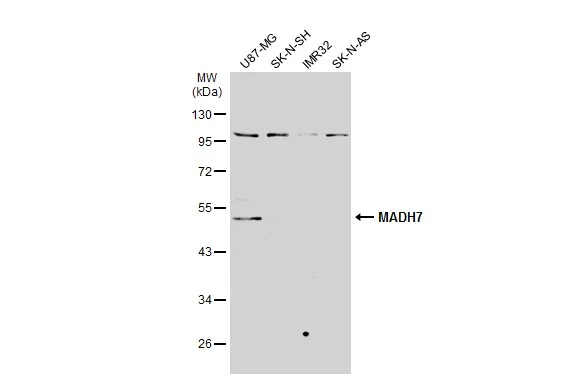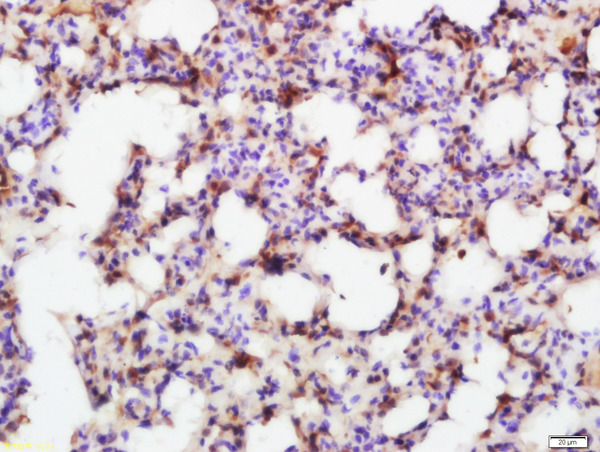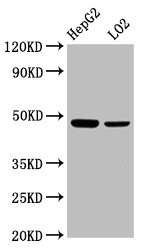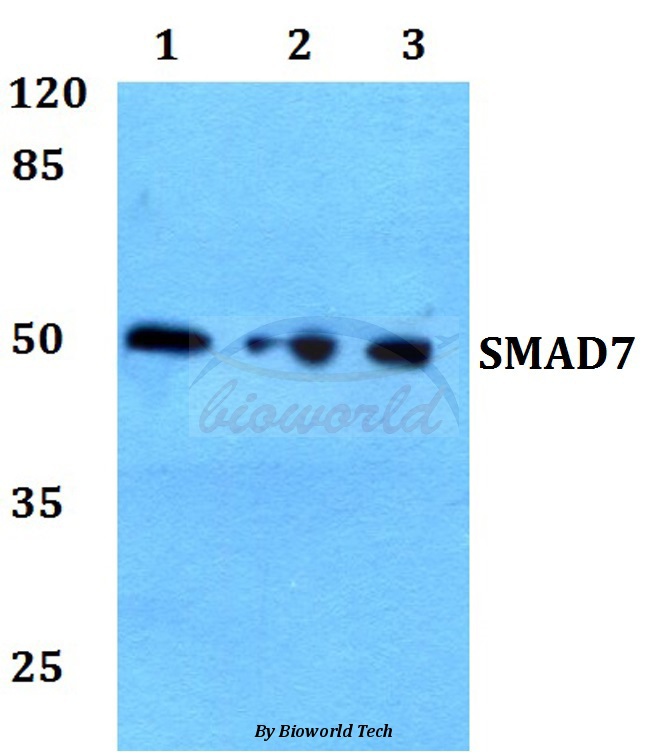MADH7 antibody
GTX106211
ApplicationsWestern Blot
Product group Antibodies
ReactivityHuman
TargetSMAD7
Overview
- SupplierGeneTex
- Product NameMADH7 antibody
- Delivery Days Customer9
- Application Supplier NoteWB: 1:500-1:3000. *Optimal dilutions/concentrations should be determined by the researcher.Not tested in other applications.
- ApplicationsWestern Blot
- CertificationResearch Use Only
- ClonalityPolyclonal
- Concentration1 mg/ml
- ConjugateUnconjugated
- Gene ID4092
- Target nameSMAD7
- Target descriptionSMAD family member 7
- Target synonymsCRCS3, MADH7, MADH8, mothers against decapentaplegic homolog 7, MAD (mothers against decapentaplegic, Drosophila) homolog 7, MAD homolog 8, Mothers against decapentaplegic, drosophila, homolog of, 7, SMAD, mothers against DPP homolog 7, hSMAD7, mothers against DPP homolog 8
- HostRabbit
- IsotypeIgG
- Protein IDO15105
- Protein NameMothers against decapentaplegic homolog 7
- Scientific DescriptionThe protein encoded by this gene is a nuclear protein that binds the E3 ubiquitin ligase SMURF2. Upon binding, this complex translocates to the cytoplasm, where it interacts with TGF-beta receptor type-1 (TGFBR1), leading to the degradation of both the encoded protein and TGFBR1. Expression of this gene is induced by TGFBR1. Variations in this gene are a cause of susceptibility to colorectal cancer type 3 (CRCS3). Several transcript variants encoding different isoforms have been found for this gene. [provided by RefSeq]
- ReactivityHuman
- Storage Instruction-20°C or -80°C,2°C to 8°C
- UNSPSC12352203
References
- Chen HY, Chou HC, Ho YJ, et al. Characterization of TGF-β by Induced Oxidative Stress in Human Trabecular Meshwork Cells. Antioxidants (Basel). 2021,10(1). doi: 10.3390/antiox10010107Read this paper
- Tsao SM, Hsu HY. Fucose-containing fraction of Ling-Zhi enhances lipid rafts-dependent ubiquitination of TGFβ receptor degradation and attenuates breast cancer tumorigenesis. Sci Rep. 2016,6:36563. doi: 10.1038/srep36563Read this paper
- Hsu HY, Lin TY, Wu YC, et al. Fucoidan inhibition of lung cancer in vivo and in vitro : role of the Smurf2-dependent ubiquitin proteasome pathway in TGFβ receptor degradation. Oncotarget. 2014,5(17):7870-85.Read this paper


![SMAD7 antibody detects SMAD7 protein by immunofluorescent analysis. Sample: DIV9 rat E18 primary cortical neuron cells were fixed in 4% paraformaldehyde at RT for 15 min. Green: SMAD7 stained by SMAD7 antibody (GTX134232) diluted at 1:500. Red: Tau, stained by Tau antibody [GT287] (GTX634809) diluted at 1:500. Blue: Fluoroshield with DAPI (GTX30920).](https://www.genetex.com/upload/website/prouct_img/normal/GTX134232/GTX134232_43124_20190306_ICC_IF_R_w_23060620_876.webp)




